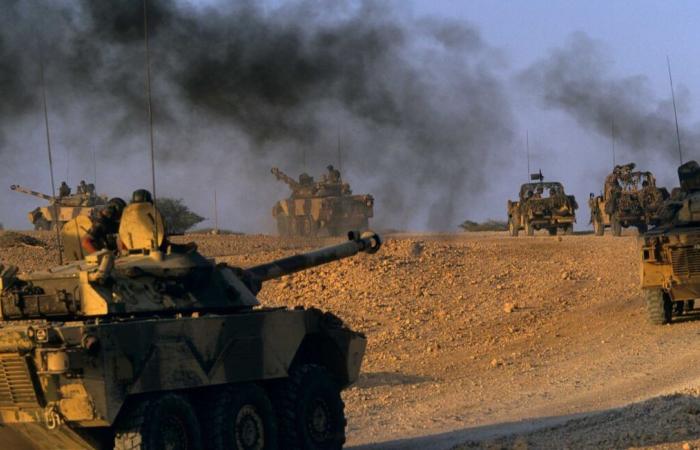
This Thursday, the Ministry of the Armed Forces announced the death of a French soldier on October 10 during a road accident in Djibouti, East Africa. The victim, Corporal Vasil Bychyk, of the 16th Foot Hunter Battalion, had just arrived on site for a short-term mission within a unit of the French Forces stationed in Djibouti (FFDJ). But why does France maintain its only and last operational military base in Africa in this country?
For almost half a century, France has maintained a significant military presence in Djibouti, an East African country barely larger than Israel with a population of just over a million inhabitants. However, this is where the largest contingent of French soldiers abroad has been stationed since 1977, around 1,500 men in 2023, according to the Ministry of the Armed Forces. In addition to men, France also has AMX 10 tanks, Caesar cannons, armored vehicles, combat helicopters and even Mirage 2000-5 fighter planes on site.
The southern gateway to the Red Sea
According to Sonia le Gouriellec, lecturer in political science at the Catholic University of Lille, specialist in the Horn of Africa, France's presence in Djibouti is, and has always been, strategic: “this base allows us to first of all to quickly project forces into the sector in the event of a crisis,” she explains. And to cite Jordan, Iraq, the Central African Republic, the Democratic Republic of Congo or even the Sahel with the Serval and Barkhane operations. “Djibouti is all the more important for France as it is its last African square,” adds Jean-Marie Collin, consultant on defense issues. “It is also a shooting site and a training place,” he explains. Where we form “a reservoir of seasoned, acclimatized and trained forces”, recognizes the Ministry of the Armed Forces.
Even today, the strategic importance of Djibouti remains essential for French interests, in particular because the country “commands southern access to the Red Sea through its proximity to the Bab el-Mandeb (BEM)”, underlines the specialist . BEM through which “15% of goods traded in the world” pass each year, she continues. “The Djibouti maritime base makes it possible to fight against attacks by Somali pirates,” insists Jean-Marie Collin. It is also useful for “keeping an eye on the activities of the Houthi rebels in Yemen”, supported by Iran, who attack commercial ships in the Red Sea, notes Sonia Le Gouriellec.
Moreover, if France was the first to install a military base in Djibouti, for a “rent” of 30 million euros per year, many other international powers were quick to imitate it. The United States, Italy and China now have a foothold in this country, not to mention Germany and Spain who are present without having a base, assures the specialist. And some countries have big ears, like the United States with the CIA and France with the DGSE. “So much so that the place was renamed ‘Djibouti, nest of spies’,” says Sonia Le Gouriellec.





